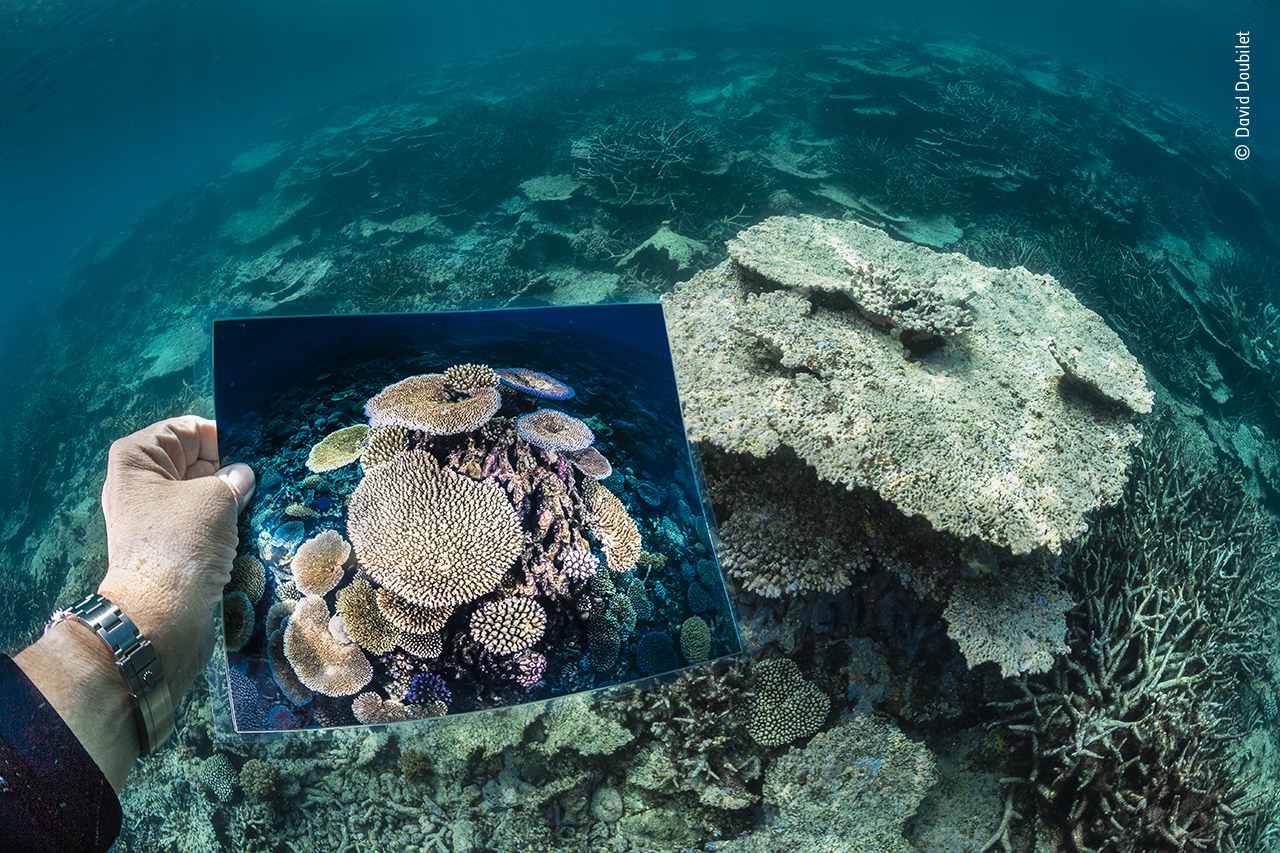Visit the exhibition
Discover the incredible stories of life on our planet through powerful photography and expert insight.
Open now

David has been diving here for more than 30 years. His images show coral ‘through the lens of time and climate change’ and are likely to become records of a vanished world.
Coral colonies are formed by thousands of tiny animals called polyps, each secreting calcium carbonate to build its own home. Polyps are fuelled by food produced by the algae living within their cells. When corals are stressed by overheating they become bleached, expelling their algae and turning white.
Discover the incredible stories of life on our planet through powerful photography and expert insight.
Open now

USA
David is a contributing photographer-in-residence and author for National Geographic with over 75 features. He has also won the Academy of Achievement, Lennart Nilsson and Explorers Club Lowell Thomas awards. He is a NOGI Fellow, member of the Royal Photographic Society, member of the International Diving Hall of Fame and founding member of the International League of Conservation Photographers.
Help us harness the power of photography to advance scientific knowledge, spread awareness of important issues and nurture a global love for nature.

Killing predators comes with big prize money in the USA. Photographer Karine Aigner goes behind the scenes of contests where hunters win and nature loses.
Read article
Nima Sarikhani’s stunning picture of a sleeping polar bear was crowned 2023's People's Choice.
Read article
Discover this year's shortlisted images and don't forget to vote for your favourite.
Read article